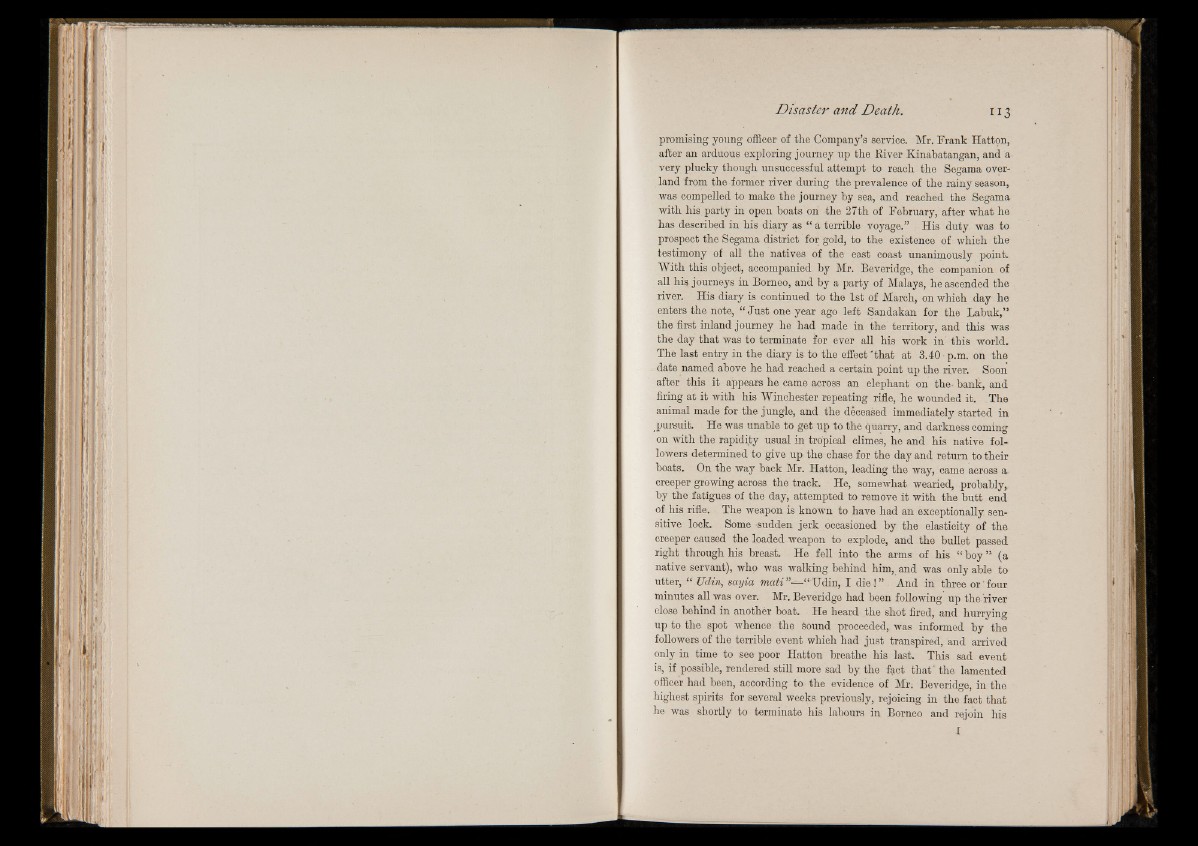
promising young officer of the Company’s service. Mr. Frank Hatton,
after an arduous exploring journey up the River Kinabatangan, and a
very plucky though unsuccessful attempt to reach the Segama overland
from the former river during the prevalence of the rainy season,
was compelled to make the journey by sea, and reached the Segama
with his party in open boats on the 27 th of February, after what he
has described in his diary as “ a terrible voyage.” His duty was to
prospect the Segama district for gold, to the existence of which the
testimony of all the natives of the east coast unanimously point.
With this object, accompanied by Mr. Beveridge, the companion of
all his journeys in Borneo, and by a party of Malays, he ascended the
river. His diary is continued to the 1st of March, on which day he
enters the note, “ Just one year ago left Sandakan for the Labuk,”
the first inland journey he had made in the territory, and this was
the day that was to terminate for ever all his work in this world.
The last entry in the diary is to the effect'that at 3.40 p.m. on the
date named above he had reached a certain point up the river. Soon
after this it appears he came across an elephant on the- bank, and
firing at it with his Winchester repeating rifle, he wounded it. The
animal made for the jungle, and the deceased immediately started in
pursuit. He was unable to get up to the quarry, and darkness coming
on with the rapidity usual in tropical climes, he and his native followers
determined to give up the chase for the day and return to their
boats. On the way back Mr. Hatton, leading the way, came across a
creeper growing across the track. He, somewhat wearied, probably,
by the fatigues of the day, attempted to remove it with the butt end
of his rifle. The weapon is known to have had an exceptionally sensitive
lock. Some sudden jerk occasioned by the elasticity of the
creeper caused the loaded weapon to explode, and the bullet passed
right through his breast. He fell into the arms of his “ boy’1 (a
native servant), who was walking behind him, and was only able to
utter, “ Udin, sayia mati”—“ Udin, I die!” And in three or four
minutes all was over. Mr. Beveridge had been following up the river
close behind in anothér boat. He heard the shot fired, and hurrying
up to the spot whence the Sound proceeded, was informed by the
followers of the terrible event which had just transpired, and arrived
only in time to see poor Hatton breathe his last. This sad event
is, if possible, rendered still more sad by the fact that' the lamented
officer had been, according to the evidence of Mr: Beveridge, in the
highest spirits for several weeks previously, rejoicing in the fact that
he was shortly to terminate his labours in Borneo and rejoin his
I